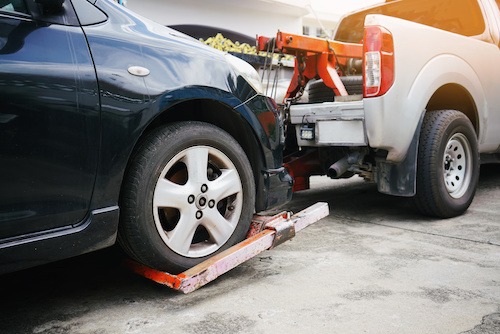
11 Jan 2022
It has become commonplace for self-storage facilities to offer on-site storage of cars, boats and recreational vehicles either with enclosed parking spaces or outside lot parking. The concept behind storing a car, boat or RV is essentially the same as storing a couch, clothes or business equipment; the tenant rents the available space to store their personal property. The difference is that the property being stored is on wheels and is generally property that is titled under a vehicle or watercraft registration process to clarify the ownership rights to the property. It is the fact that the property is titled that makes the lien foreclosure process more difficult when a tenant defaults on the payment of their rent. To solve this title obstacle in the lien sales process, the national Self Storage Association, along with the cooperation and support from multiple state Self Storage Associations, has successfully modernized the applicable self storage laws to include the option of having cars, boats and RV’s towed from the self-storage facility and disposed of by a licensed towing service. Rather than impose the rigors of managing the proper title obligations on a self- storage facility that seeks to dispose of a car, boat or RV that has been abandoned on their property, the towing option not only allows a self-storage operator to avoid the headaches of the proper title process involved in the sale of cars, boats and RV’s, it also allows for a faster and more economical remedy of these situations. This allows the operator to properly remove the stored property from their facility and offer the opportunity to re-rent the now available rental space at a quicker pace.
As with all statutory changes that are handled on a state-by-state basis, the towing exceptions are not uniform. And even if similar, many of the state laws that have been changed to allow towing in lieu of lien sale must be carefully reviewed and separately complied with based on the particular state where the facility (and personal property) is being stored. Since more than forty (40) states have now adopted some sort of towing option, those operators in multiple states must be careful to apply the requirements of their specific facility state (as it applies to notice) to avoid any statutory violations before the property is towed away.
Recently the SSA announced success in updating a number of state lien laws to include towing options. Alabama. North Dakota and Texas are outlined below as an example of the language found in these updated state laws.
Alabama Sec 8-15-46 (d).
“If the personal property subject to the operator's lien is a vehicle, watercraft, or trailer and rent and other charges remain unpaid for 60 days, the operator may have the vehicle, watercraft, or trailer towed from the self-service storage facility. The operator shall not be liable for any damages to the vehicle, watercraft, or trailer once a licensed and bonded tower takes possession of the property. Removal of any vehicle, watercraft, or trailer from the self-service storage facility shall not release the operator's lien. …At any time before a sale is held under this section or before a vehicle, watercraft, or trailer is towed under this section, the occupant may pay the amount necessary to satisfy the lien and redeem the personal property. The operator shall have no liability to any person with respect to personal property redeemed pursuant to this subsection.”
North Dakota Sec 35-33-19.
“If the personal property subject to a lien under section 35-33-02 is a motor vehicle, watercraft, or trailer, and rent or other charges under the rental agreement remain unpaid for sixty days, the owner may have the motor vehicle, watercraft, or trailer towed from the self-service storage facility property by a commercial towing service as defined in section 23.1-15-01. An owner may not be held liable for damage incurred to an occupant's motor vehicle, watercraft, or trailer after the owner relinquishes possession of the personal property and the personal property is removed from the self-service storage facility property. Removal of personal property from a self-service storage facility does not release the owner's lien under section 35-33-02.
Texas Sec. 59.052.
Notwithstanding Subchapter C, a lessor who takes possession of property to which this subchapter applies to enforce a lien under this chapter may transfer possession of the property and have the property towed to a vehicle storage facility for disposition by the vehicle storage facility under Subchapter D, Chapter 2303, Occupations Code, if: (1) the transfer of possession and towing is authorized under a written rental agreement between the lessor and tenant; (2) the lessor gives written notice of the lessor's claim to the tenant as required under Section 59.042(a) in the manner prescribed by Section 59.043; (3) the tenant fails to satisfy the claim on or before the 14th day after the date the notice required under Section 59.042(a) is delivered in the manner prescribed by Section 59.043; and (4) the vehicle storage facility agrees in writing to accept possession of the property.
Sec. 59.053.
A lessor's lien on property towed to a vehicle storage facility under Section 59.052 is extinguished when the property is towed from the self-service storage facility.
Sec. 59.055.
A lessor is not liable to a tenant for any damage to property that the lessor has towed under Section 59.052 that occurs during the tow or after the property is towed from the self-service storage facility.
Again, each state law that now permits a towing option in lieu of sale offers unique obligations for the facility operator. Accordingly, even though an alternative has been provided, self-storage operators must be careful to verify that they are compliant with the law before the towing occurs. Furthermore, as with all situations where property is being removed or disposed of by the facility, take lots of pictures to establish the condition of the property before it leaves the premises.
This article was originally published by Scott Zucker, July 2021